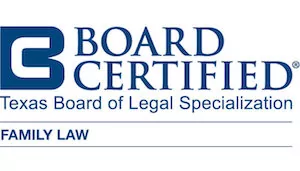
Whether you or the other parent is moving, we have a Houston relocation attorney who can help. Founded by Mary E. Ramos, the Ramos Law Group, PLLC, is committed to treating each and every client with compassion and empathy. We carefully monitor Texas family law as it develops to ensure we remain up to date with all the best ways to fight for our clients. If you need the assistance of an attorney to relocate with a child subject to a custody order, reach out today.
Child Custody in Texas
Texas uses unique terminology for what most states call child custody. Instead of having custody, you have a conservatorship with your child. There are three types of conservatorships:
- Joint managing conservatorship (JMC),
- Sole managing conservatorship (SMC), and
- Possessory conservatorship.
A JMC is equivalent to joint custody in most states, while an SMC is equivalent to sole custody. However, the categories do not align perfectly, and some overlap occurs.
In custody determinations, the paramount consideration is the best interests of the child. If the child’s best interests justify a departure from the usual rules, the custody order should explain how. When in doubt about what you can or cannot do with respect to your child, always consult your custody order.
Joint Managing Conservatorship
The law presumes a JMC is in the child’s best interests unless one parent has had a history of abuse or neglect. In a JMC, both parents have the right to make decisions about the child’s life. However, one parent will frequently be designated as the custodial parent and the other the noncustodial parent. The child primarily lives with the custodial parent, who has the authority to decide where they live. However, this authority is usually limited to a particular geographic area, like a county or school district.
Sole Managing Conservatorship
A sole managing conservator usually has the exclusive right to make big decisions about their child’s life. That includes deciding where the child lives, even if it means moving outside their current geographic area. However, some custody orders may limit where a parent with an SMC can move the child.
Possessory Conservatorship
When one parent is a sole managing conservator, the other parent is typically designated as a possessory conservator. A possessory conservator has visitation rights but usually cannot make big decisions about the child’s life, including where the child lives. However, some custody orders may give the possessory conservator specific rights to prevent their child’s relocation outside a certain area.
What to Do If One Parent Wants to Move
If your child custody order includes a limitation on where the child can reside, the child must continue to live there unless the custody agreement is modified. Either parent can ask to modify the order, especially if one parent plans to move 100 miles or more away. Even when a parent moves away without their child, you may need to modify the custody order. In an SMC, modifying the custody arrangement before the move is also wise, though not always required by law.
Modifying a Child Conservatorship
Either parent can ask the court to modify the custody order when one parent wants to move. If both parents agree on how to modify the order, the court will generally approve the change. Otherwise, the parents will argue to the court about why the custody order should or should not be modified, and the court will make the ultimate decision.
A parent can ask to modify a custody order when the child or parent’s circumstances have “materially and substantially changed” since the order went into effect or the child has not lived with the parent who has the right to decide their residence for at least six months. Like the initial custody order, the child’s best interests guide modifications to custody orders.
Relocation may qualify as a material and substantial change justifying a modification unless the relocation is a veiled attempt to impede the other parent’s right to see the child.
When deciding the child’s best interests in the relocation context, the court looks at things like:
- What the child wants, when age-appropriate,
- The child’s current and future physical needs,
- The risk of harm to the child,
- The parent’s ability to care for the child,
- The support available to the child in the current location and in the place the parent wants to move, and
- Where the child will live and what kind of life they will have there.
Each case depends heavily on its own unique circumstances. A relocation lawyer can help you identify and focus on the things courts emphasize when evaluating the child’s best interests during relocation requests.
Contesting a Potential Move
If the other parent wants to move away with your child and you do not agree to the move, you can ask a judge to modify the agreement to set a specific geographic area if none already exists. You will need to explain why remaining in the area is in the child’s best interests.
While that modification is pending, you can also request the judge issue a temporary order. You can temporarily request an alteration to where the child lives if:
- The child’s physical health or emotional development are at risk,
- The child has not lived with the parent who can decide where the child lives for at least six months, or
- The child is at least 12 years old and makes a request to the judge in private.
These options may stop even a parent with an SMC from moving away with the child if the child is at risk or does not want to move.
Moving When No Restriction Exists
If you have an SMC, you frequently have the exclusive right to decide where your child lives. You may not need to modify your custody order or even get consent from the noncustodial parent before you move. However, as long as the other parent retains parental rights, you must provide them with your new address. You should promptly notify the other parent of the address unless your court order specifics otherwise. If you are concerned about the safety of yourself or your child, you can ask to modify the order to keep your address private.
The Ramos Law Group, PLLC, Can Help You Relocate
At the Ramos Law Group, PLLC, we understand that you need to adapt to the changes life brings to you. Whether that means moving away with a child you share custody of or modifying a custody order to ensure your child remains with their community, we can help. Contact us today to see what a Houston relocation lawyer can do for you.










